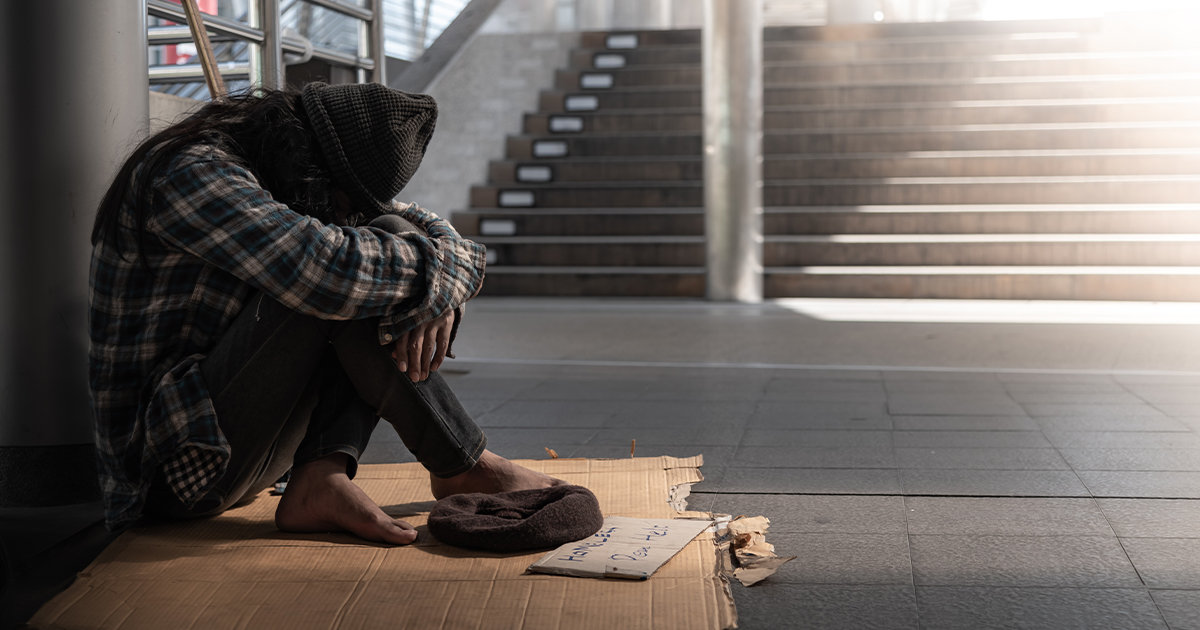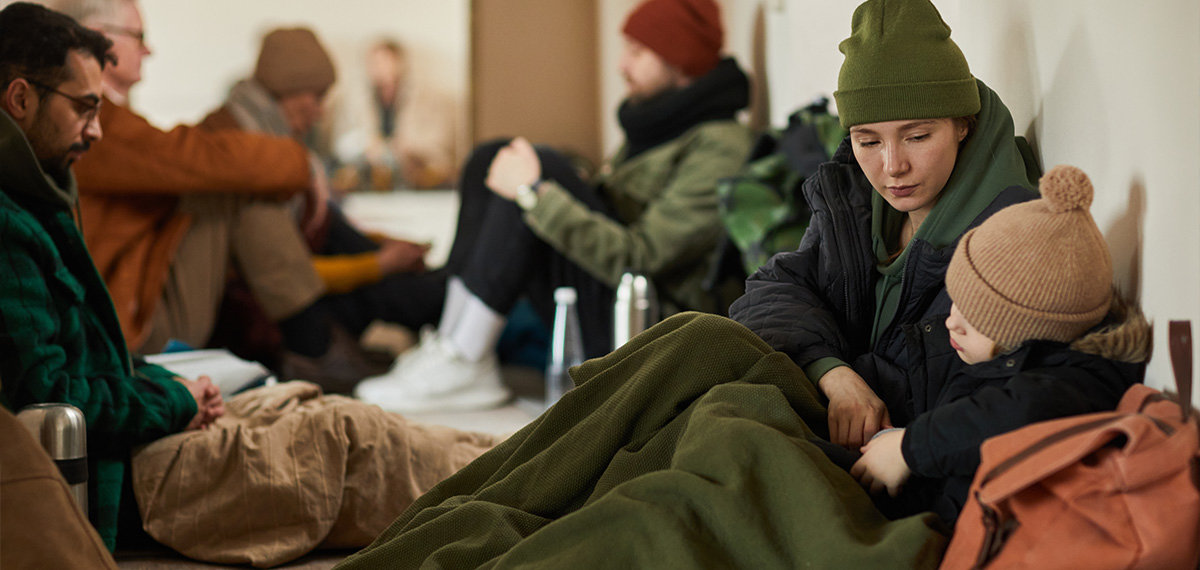
Imagine a world where you're judged not by your character, but by the circumstances you face.
Have you ever walked past an unhoused person and felt uncomfortable, possibly passing judgement based on their circumstances?
Being unhoused is a complex issue that affects people from all walks of life. Unhoused people face not only the harsh realities of life on the streets but also the burden of negative stereotypes. It’s easy to assume that being unhoused is solely due to laziness or addiction.
That’s simply not the case.
In today’s blog post, we are putting an end to the stigma and challenging the common stereotypes about the unhoused. Stereotypes have the power to shape our perceptions and influence our actions. Let's challenge them together.
At ShiftLink, we know your time matters. We know your work matters. Interrupting your focus on caring for others to perform the time-consuming task of filling shifts in a pinch is frustrating at best. ShiftLink is not a band-aid fix. It is a response to your deepest need — to spend more time on what truly matters. We have created a software that will ease every pain point related to shift scheduling. Request a demo today or send us an email to learn more.
This stereotype assumes that unhoused individuals are unemployed by choice or lack the motivation to find work. It disregards the fact that many unhoused people struggle to secure stable employment due to various barriers, such as lack of a permanent address or access to resources, or discrimination.
Some people stereotype unhoused individuals as abusing substances or having an addiction. While substance abuse and addiction are challenges some unhoused individuals face, it's important to recognize that these are often coping mechanisms rather than a cause of the issue.
There's a misconception that being unhoused is primarily a result of mental illness. While mental health issues can contribute to the issue, it's important to remember that many unhoused people struggle with mental health challenges after the fact due to the stress and trauma of living on the streets.
Being unhoused is not a crime, and most individuals living on the streets are not engaged in criminal activities. Stereotyping them as criminals further encourages fear and discrimination.
Stereotypes about unhoused individuals can have profound negative effects.
Here are a few to consider:
Stigmatization: Stereotypes contribute to the social stigma that unhoused individuals face. Stigmatization often leads to feelings of shame and isolation.
Reduced Access to Services: Stereotypes can make service providers less empathetic and less likely to assist unhoused individuals.
Barriers to Employment: Stereotypes can make it difficult for unhoused individuals to secure jobs, as employers may hold biased views about their work ethic or reliability.
Mental Health Impact: Unhoused individuals internalize these stereotypes, which can worsen their mental health struggles.
Media often portray unhoused individuals in stereotypical ways, reinforcing these biases in society. News stories that focus on extreme cases or criminal activities of a few unhoused individuals can misrepresent the broader unhoused population.
Stereotypes about the unhoused population are perpetuated through gossip, misinformation, and a lack of understanding. Prejudices within society can lead to discriminatory behaviours, further marginalizing this group.
In most cases, the reality of being unhoused couldn’t be farther from the stereotypes.

According to Statistics Canada, it is estimated that an average of 235,000 people in Canada experience one of the many types of homelessness each year. The majority of unhoused individuals are women (52%) between the ages of 35-44 years old.
Being unhoused can happen to people from all walks of life, including veterans, LGBTQ+ youth, families, and individuals with varying levels of education. Many unhoused individuals have faced unexpected life circumstances that led to their situation.
Job Loss or Underemployment: Sudden loss of income or low-paying jobs can make it difficult to afford housing.
Medical Expenses: Medical emergencies and healthcare costs can lead to financial instability.
High Cost of Living: Rising rent and housing costs have had a big impact in many areas.
Lack of Affordable Housing: The lack of affordable housing is a significant contributor to being unhoused. With the housing market constantly on the rise, there is a gap between income levels and housing costs. There is also limited availability of low-income housing options.
Family Breakdown: Family-related issues can result in being unhoused. One example is youth who are kicked out of their homes due to conflicts related to their identity, sexual orientation, or other reasons. There is also an increased number of families experiencing domestic violence or instability within the household.
We believe that there are solutions available and we can make a big impact in the lives of those who are unhoused.
Advocacy helps reshape the public perception of unhoused individuals by actively confronting stereotypes and dispelling misconceptions.
By spotlighting impactful advocacy campaigns, organizations, or individuals that have tirelessly worked to raise awareness and drive policy changes, we can prove how advocacy not only sheds light on the realities of those being unhoused but also fosters empathy, compassion, and a deeper understanding within society, ultimately leading to more compassionate and informed attitudes toward this vulnerable population.
Educational initiatives and awareness campaigns are powerful tools for challenging stereotypes about unhoused individuals, as they not only debunk myths but also cultivate empathy and humanize those experiencing unhousedness.
We can educate the public about the multifaceted nature of those unhoused so we can demonstrate how the strategic use of diverse media platforms, including social media and community events, can amplify the message, bridge knowledge gaps, and promote a more compassionate and nuanced understanding of this pressing social issue.
There is significance in the collaborative efforts involving government agencies, nonprofits, businesses, and the community in addressing those unhoused.
By pooling resources and expertise, we can find holistic solutions like housing, mental health services, and employment opportunities. This demonstrates the transformative impact of collective action in addressing the multifaceted challenges of unhousedness.
To challenge stereotypes about the unhoused, we want to highlight the often-overlooked positive contributions of unhoused individuals, from their resilience to their resourcefulness.
By doing so, we aim to foster empathy and understanding, encouraging readers to see beyond preconceived notions and view unhoused individuals as fellow human beings facing unique challenges.
Let’s use compassionate and non-stigmatizing language when discussing the unhoused population, as word choices can play a crucial role in reshaping perceptions and dismantling stereotypes.
We have the power to create a better future for everyone.
At ShiftLink, we know your time matters. We know your work matters. Interrupting your focus on caring for others to perform the time-consuming task of filling shifts in a pinch is frustrating at best. ShiftLink is not a band-aid fix. It is a response to your deepest need — to spend more time on what truly matters. We have created a software that will ease every pain point related to shift scheduling. Request a demo today or send us an email to learn more.


